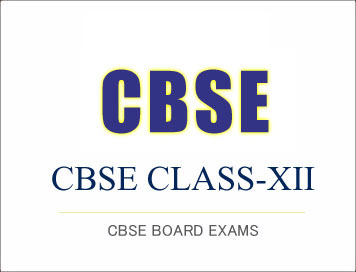CBSE Class-12 Syllabus 2019-20 (Informatics Practices)
Disclaimer: This website is NOT associated with CBSE, for official website of CBSE visit - www.cbse.gov.in
CBSE Class-12 Syllabus 2019-20 (Informatics Practices)
Informatics Practices(New)
CLASS XII
Code No. 065
Optional for the academic year 2019-20 and mandatory for the academic year 2020-21 onwards
2. Learning Outcomes
1. Understand aggregation operations, descriptive statistics, and re-indexing columns in a DataFrame.
2. Apply functions row-wise and element-wise on a Data Frame.
3. Understand basic software engineering: models, activities, business use-case diagrams, and version control systems.
4. Connect a Python program with a SQL database, and learn aggregation functions in SQL.
5. Have a clear understanding of cyber ethics and cybercrime. Understand the value of technology in societies, gender and disability issues, and the technology behind biometric ids.
3. Distribution of Marks
| Unit No. | Unit Name | Mark |
| 1. | Data Handling | 30 |
| 2. | Basic Software Engineering | 15 |
| 3. | Data Management | 15 |
| 4. | Society, Law and Ethics | 10 |
| 5. | Practicals | 30 |
| Total | 100 |
4.1. Unit 1: Data Handling (DH-2) (80 Theory + 70 Practical)
4.1.1. Python Pandas
- Advanced operations on Data Frames: pivoting, sorting, and aggregation
- Descriptive statistics: min, max, mode, mean, count, sum, median, quartile, var
- Create a histogram, and quantiles.
- Function application: pipe, apply, aggregation (group by), transform, and apply map.
- Reindexing, and altering labels.
4.1.2. Numpy
- 1D array, 2D array
- Arrays: slices, joins, and subsets
- Arithmetic operations on 2D arrays
- Covariance, correlation and linear regression
4.1.3. Plotting with Pyplot
- Plot bar graphs, histograms, frequency polygons, box plots, and scatter plots.
4.2 Unit 2: Basic Software Engineering (BSE) (25 Theory + 10 Practical)
- Introduction to software engineering
- Software Processes: waterfall model, evolutionary model, and component based model
- Delivery models: incremental delivery, spiral delivery
- Process activities: specification, design/implementation, validation, evolution
- Agile methods: pair programming, and Scrum
- Business use-case diagrams
- Practical aspects: Version control system (GIT), and do case studies of software systems and build use-case diagrams
4.3. Unit 3: Data Management (DM-2) (20 Theory + 20 Practical)
- Write a minimal Django based web application that parses a GET and POST request, and writes the fields to a file – flat file and CSV file.
- Interface Python with an SQL database
- SQL commands: aggregation functions, having, group by, order by.
4.4. Unit 4: Society, Law and Ethics (SLE-2) (15 Theory)
- Intellectual property rights, plagiarism, digital rights management, and licensing (Creative Commons, GPL and Apache), open source, open data, privacy.
- Privacy laws, fraud; cybercrime- phishing, illegal downloads, child pornography, scams; cyber forensics, IT Act, 2000.
- Technology and society: understanding of societal issues and cultural changes induced by technology.
- E-waste management: proper disposal of used electronic gadgets.
- Identity theft, unique ids, and biometrics.
- Gender and disability issues while teaching and using computers.
- Role of new media in society: online campaigns, crowdsourcing, smart mobs
- Issues with the internet: internet as an echo chamber, net neutrality, internet addiction
- Case studies - Arab Spring, WikiLeaks, Bit coin
Click Here To Download Informatics Practices (New) Syllabus
Click Here To Download Informatics Practices (Old) Syllabus
Courtesy: CBSE
